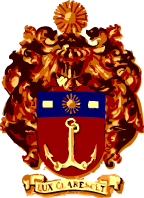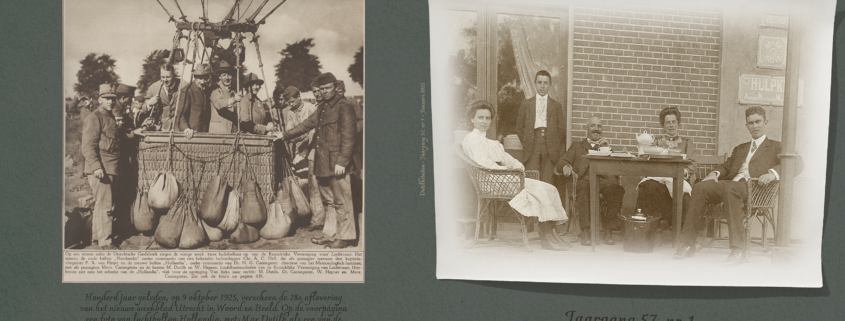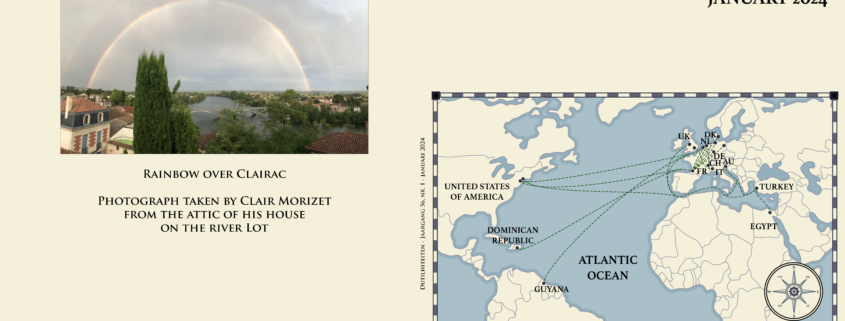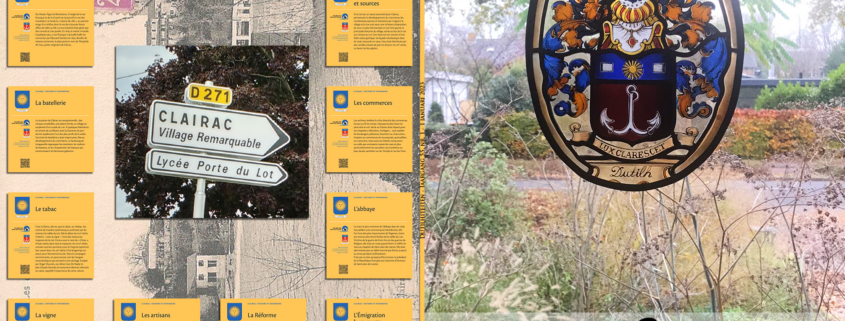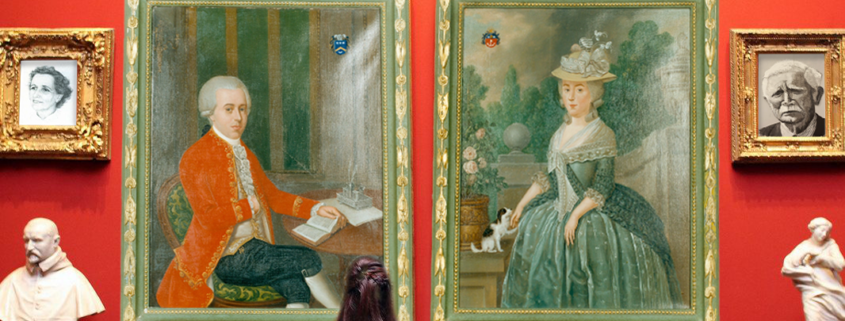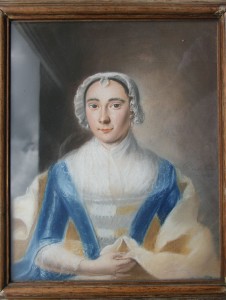Welcome
This is the website of the Dutilh Family Foundation
The Dutilh family originates from Aquitaine, the French Region located in the South West of the country, in particular from places like Bearn and Orthez. Until to date this is the region where most Dutilh’s are living.
The Dutch Dutilh family descends from Clairac, the city which its ancestors left in around 1700. At present around ninety descendants live around the world, but most of them still live in The Netherlands, with a large number in both Rotterdam and Amsterdam.
In 1962 the Dutch family established the Dutilh Family Foundation, with three main objectives:
- Maintain and support the interaction between members of the family
- Stimulate collection and preservation of family heritage
- Create a better understanding of the family history
This website is one of the tools to achieve those objectives.
Dutilhiteiten
News
Catarina Dutilh Novaes appointed as URC professor
The Vrije Universiteit Amsterdam (VU) will appoint Catarina Dutilh Novaes as Professor of Reasoning and Argumentation, and their History at the University Research Chair on 1 January 2019. With this program, the VU recognizes excellent scientists as future leaders in their field. They are selected because of their excellence and potential for the future. Catarina Dutilh Novaes amply meets the standard quality requirements for professors, transcends her colleagues in the same position and has the most potential for rapid development. Find out more.
Bas Dutilh supervises iGEM team
In October every year, 6,000 of the world’s brightest students gather at the Hynes Convention Center in Boston, USA, to compete in the international Genetically Engineered Machine (iGEM) competition. This five-day event is the grand-finale of nearly a year’s hard work, and teams will showcase their innovative projects on stage, under the hot lights in front of their peers and the public.
iGEM is a student competition in synthetic biology, where students compete to build a synthetic biological system that can serve humanity in a useful way. By participating in the iGEM competition, students experience all aspects of science. Not only do they conceive and execute a novel scientific project, they also actively implement non-scientific skills such as leadership, fundraising, management, public outreach and communication.
“The iGEM experience is a unique way to contribute to fostering talent,” describes Bas Dutilh, one of Utrecht’s five supervisors, “These are the very best and brightest students of our university and as supervisors, it’s a real privilege to mentor this enthusiastic team.” The team has become very close; they’ve spent a lot of time together, both directly on the project and during team building activities, and really enjoy each other’s company. “It’s inspiring to watch them grow an idea and drive it forward,” says Bas, “And, it’s just good fun.” Read more.
Study by Bas Dutilh models relationship between metabolites and bacterial genes
Article in Nature Microbiology of 12 March 2018 describes:
The human body is increasingly seen as a complex ecosystem, home to thousands of microorganisms and their metabolites. The health of this ecosystem hinges on the relationship between the microbes and human cells and tissues, and metabolites are often the key to this relationship.
“Metabolites are vital, but it is often difficult to find out which ones are present at a specific site in the body. There are many different metabolites, and their concentrations can vary widely,” explains research leader Dr. Bas Dutilh from Utrecht University. “Since metabolites are so closely linked to the growth of bacteria, we thought that it might be possible to predict their composition based on the types of bacteria present. The only input we need for that is the abundances of the bacteria and their genes, and progress in the field of metagenomics has made it relatively easy to get those.”
Featured Portrait
Maria Catharine Dutilh-Carlen (1715-1776). More portraits in the Portrait Gallery.
